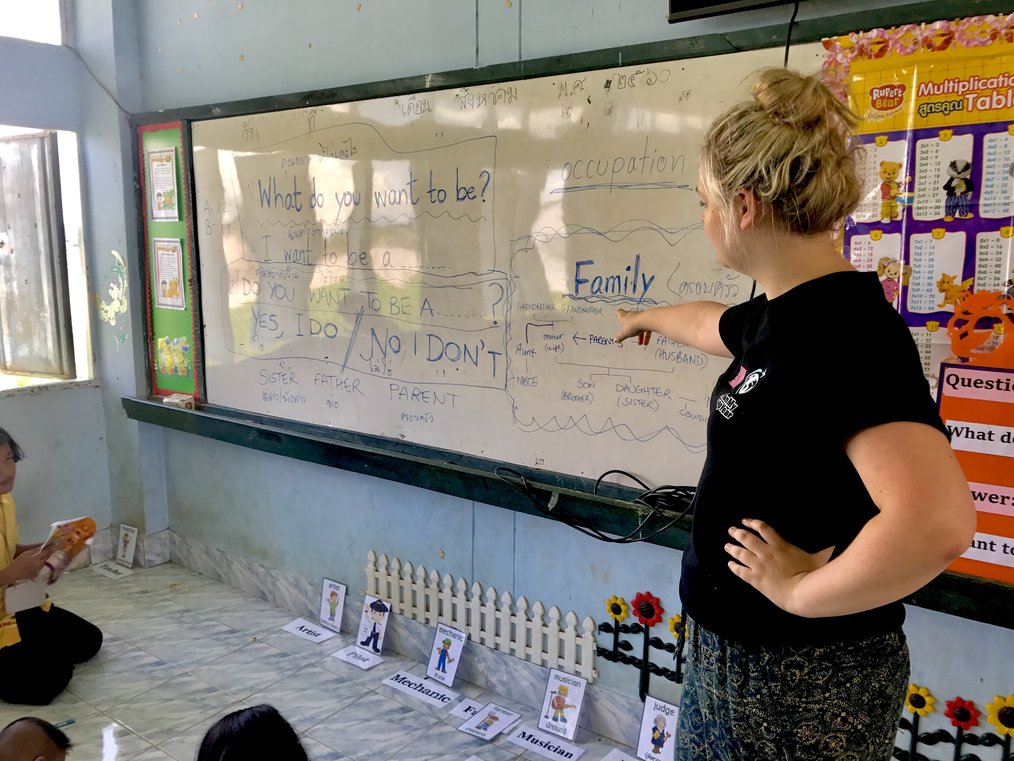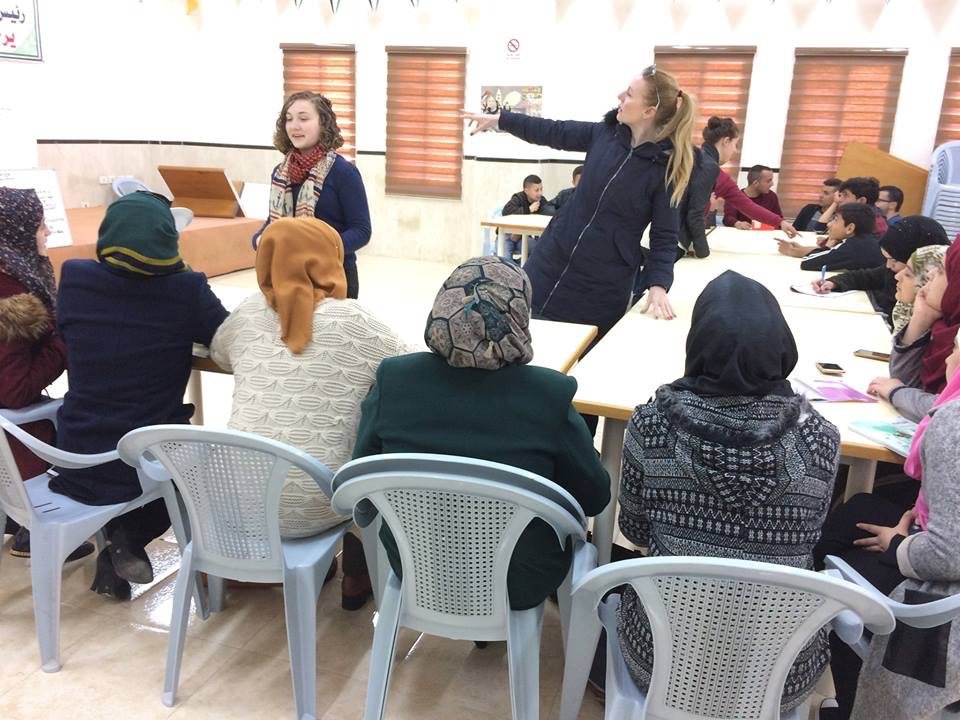How Much Do You Interact With Parents While Teaching Abroad?
Read on to learn about how much you'll interact with parents while teaching abroad, when that might happen, and how to handle it.

If there's one thing I dreaded when I first started teaching abroad, it was interacting with parents. Back home, teachers often complain about demanding parents, and I had nightmares over the possible scenarios of parents questioning my teaching abilities, especially since I was a brand new teacher!
But to be honest, as a teacher abroad, you really won't have to interact with parents very often. Personally, I was extremely surprised by the limited conversations I had, especially considering that I was fluent in the local language.
When do you have to interact with parents? What possible scenarios could you find yourself in while teaching abroad?!
Don't worry, we've got you covered. Read on to learn about how much you'll interact with parents while teaching abroad, when that might happen, and how to handle it.
You Won't Have to Interact With Parents Much -- Here's Why

Chances are, if you're teaching English abroad, the locals in your country won't be speaking English as a first language. Depending on your chosen country, your parents might have a wide variety of English skill levels. Here in China, it's pretty rare that I meet a parent who's fluent in English enough that we can have an extended conversation about their child's classroom performance.
This means that if a parent needs to speak with someone at the school, you're probably not their number one choice. Why bother having a strained conversation with you, when they can just call one of your Chinese colleagues?
Whether its a request, complaint, or message of praise, most parents typically choose to go through the school to get in touch. This helps reduce how often you'll interact with parents as a teacher abroad.
Dealing with Parents through Indirect Interactions

Just because you won't be speaking one-on-one with parents doesn't mean you won't indirectly communicate with them. As I said before, most messages will come through the school. Because of this, if a parent has a concern, you'll most likely hear it from your manager or boss.
Ideally your school should be a mediator between you and the parents. They will assess a parent's concern and then tell you what they want you to do about it.
The most common concerns might be that a parent wants more homework, more vocabulary, more discipline, or fewer fun games and videos. (Yes, I do feel bad for my students whenever I hear this parent feedback!)
In this case, the school will assess whether or not this is a valid concern, and they will tell you what to do. Ideally, you will have some sort of say in the situation, but there are times where "the customer is always right" and you have to keep a kid in an inappropriately advanced level because a family doesn't want to lose face due to their five-year-old's English level.
Common Times You'll Need to Interact with Parents

There are a few situations where you will need to directly interact with parents. Obviously, every job and country is different, but there are some pretty common scenarios where you and a parent will actually be in the same room together.
Teaching Demo Classes
Many for-profit academies will hold demo classes to give parents a taste of what their money can buy. Some schools require demo classes as part of your contract, while other schools may give you a commission for each student who signs up.
Overall, the goal is to convince the parents that your teaching is worth their hard-earned money. Thankfully, if a parent shows up for a demo, chances are they're pretty close to signing. All you have to do is work your teaching magic before the contracts are drawn.
Unsure about demo classes? Here's everything you need to know about demo classes and how to ace them.
Parents Who Like to Sit In On Classes
While parents who like to sit in aren't very common, sometimes it happens. I get it, having someone watch you teach is super nerve-wracking, but there's honestly nothing you can do about it if you work in an after-school academy.
I once had a grandmother sit in on every single one of my classes. I'm still convinced she was trying to learn English herself for free. (Not a bad idea, actually!)
If you have parents that sit in your class every week, the best thing to do is just carry on with your job as usual. Eventually, you'll get used to having them there, and it won't be a big issue. Worst case scenario, if you really, really hate it, you might want to try teaching at a public school where parental snooping is less common.

Parent-Teacher Conferences
Parent-Teacher conferences are pretty uncommon in the teach abroad world, but I have had a few friends who were asked to do them. Typically these conferences involve a translator in the form of a Chinese colleague.
Your boss should definitely inform you on what to prepare for the meeting beforehand. This might include past assignments, a list of lessons you've taught, notes on a student, or just a general description of the student's level.
How can you ace a parent-teacher conference? Obviously, preparation is priority #1. Aside from gathering up necessary materials, just remember that a parent-teacher conference abroad is typically for the parent, not the student. Parents want to feel connected to the teacher and to know their thoughts are being heard. Just make sure your parent feels "in the loop" and you should be fine.
Parents Who Speak English
Sometimes you get a parent who's fluent in English and wants to chat. While this isn't super common, it does happen occasionally. Generally, there's no need to be concerned when a parent comes to chat. Usually, they just want a chance to practice their English and get to know their student's teacher.
However, sometimes you get parents who are overly chatty and want to know every detail of their precious child's lesson. In this case, I'd let your boss know so they can reach out and moderate the situation. You don't want to spend half your lesson planning time conducting an unofficial meeting with an overly-enthusiastic parent!
Parents of Students You Tutor
If you're tutoring a student one-on-one, you will definitely have a bit more interaction with the parents than you typically would in a school. This is especially true if you tutor a student at his or her home.
Don't be surprised if parents offer you drinks or snacks, or even invite you out to dinner. This is pretty common in many areas of the world, especially East Asia.
If a parent invites you to dinner, I would suggest saying yes, unless for some reason you feel uncomfortable. It's very common for parents of students you tutor to want to treat you to a meal. If for some reason you really don't want to go, just make up an excuse!
Overall, the amount of time you spend interacting with parents as an English teacher abroad is pretty minimal. However, there are those times where interacting with a parent is required. Just remember: there's no need to be scared of parents! They just want the best for their kid and are most likely happy to get to know their child's foreign teacher.
